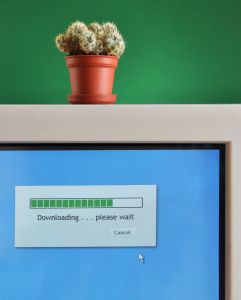

THERE ARE interesting rulings out this week. A very vocal proponent of software patents asks about the Versata case [1, 2, 3], "Did the PTAB Just Kill Software Patents?" Well, yes. And it matters. "On Tuesday, June 11," he writes, "the Patent Trial and Appeals Board issued a ruling in SAP America, Inc. v. Versata Development Group, Inc., which is the result of a Covered Business Method challenge to U.S. Patent No. 6,553,350 filed by SAP on September 16, 2012. The PTAB, per Administrative Patent Judge Michael Tierney, determined that “Versata’s ’350 claims 17, and 26-29 are unpatentable under 35 U.S.C. €§ 101.” Looking more closely at the ruling, however, makes it clear just how significant this ruling will be. The breadth of the 101 determination is shocking and virtually guarantees that 101 will be used by patent examiners to effectively prevent software patents from issuing altogether."
"The ruling was limited, so it is too early to celebrate."Here is a news report about it (AOL). This gets somewhat overshadowed by news about a SCOTUS ruling. An inaccurate report from Rupert Murdoch's press says "The Supreme Court unanimously ruled Thursday that human genes isolated from the body can't be patented, a victory for doctors and patients who argued that such patents interfere with scientific research and the practice of medicine."
This is only part of the story, as we'll explain in days to come. Kevin Granade told me "they affirmed that isolated, unmodified DNA is unpatentable, but ruled the *transcription* of the same as cDNA patentable [...] the reporting has it wrong, the ruling regards all unmodified DNA, not just human DNA. Effectively a key lying on the ground is unpatentable, but if you make an impression you can patent the mold. Very unfortunate."
The Guardian botched it too. The ruling was limited, so it is too early to celebrate. It's like celebrating patent trolls getting the attention of Brand Obama. There is no action yet from the White House (just words [1, 2, 3, 4]) and it would not be the resolution of the problems, either. As this new post put it, this is not enough. To quote just the opening:
Patents may have once seemed like a good idea. At least it seemed that way to the Venetians, who in 1474 declared the publication and protection of the “works and devices” of “men of great genius” would encourage others to apply their genius and ultimately benefit their society as a whole.
This noble idea may have had a place in the Italian Renaissance, but wind forward 539 years and we have a patent system infested with “patent trolls” and seemingly endless disputes between software and technology companies expending billions of dollars over ideas that involve neither genius nor benefit to society.